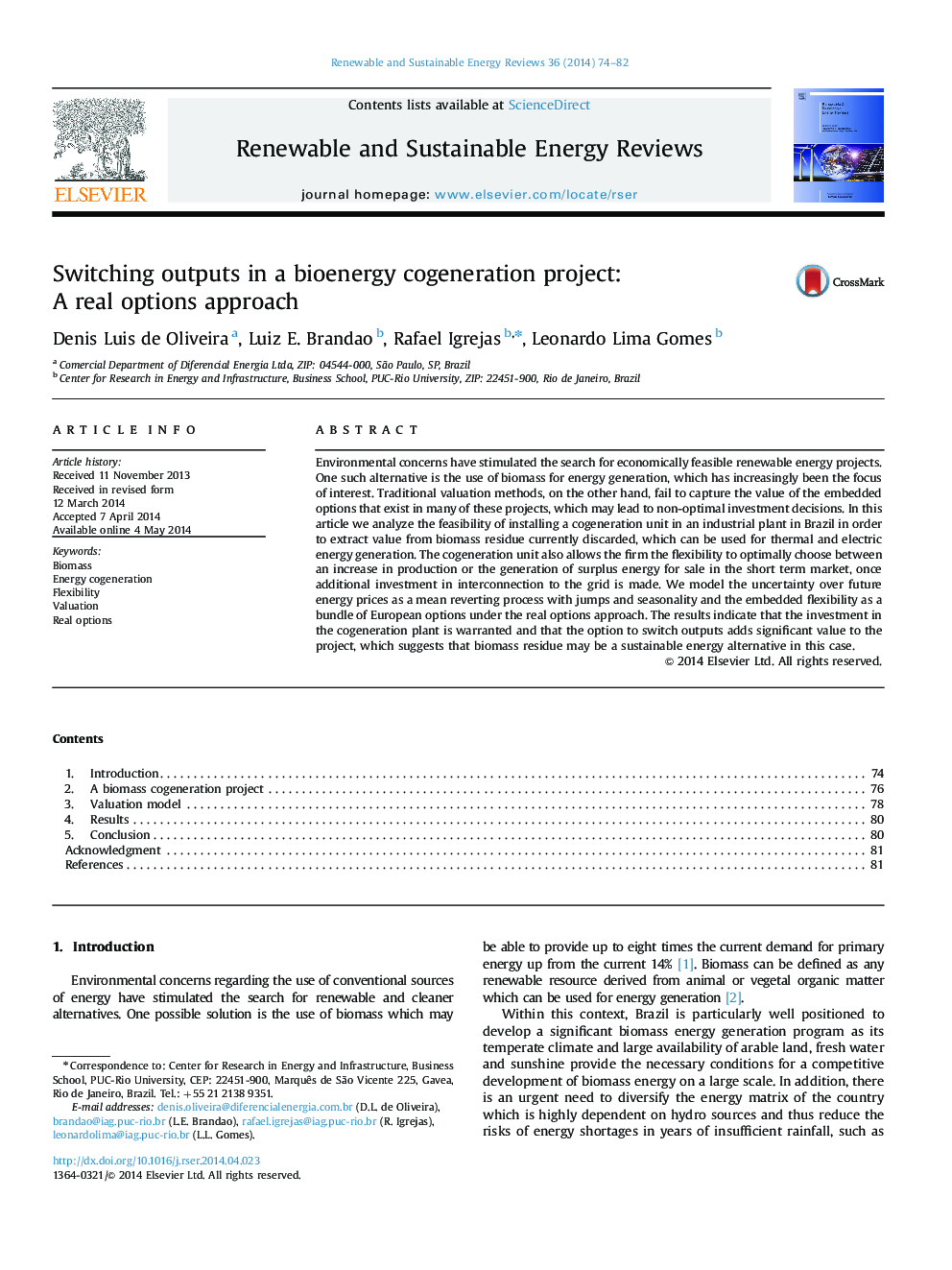| Article ID | Journal | Published Year | Pages | File Type |
|---|---|---|---|---|
| 1750329 | Renewable and Sustainable Energy Reviews | 2014 | 9 Pages |
Environmental concerns have stimulated the search for economically feasible renewable energy projects. One such alternative is the use of biomass for energy generation, which has increasingly been the focus of interest. Traditional valuation methods, on the other hand, fail to capture the value of the embedded options that exist in many of these projects, which may lead to non-optimal investment decisions. In this article we analyze the feasibility of installing a cogeneration unit in an industrial plant in Brazil in order to extract value from biomass residue currently discarded, which can be used for thermal and electric energy generation. The cogeneration unit also allows the firm the flexibility to optimally choose between an increase in production or the generation of surplus energy for sale in the short term market, once additional investment in interconnection to the grid is made. We model the uncertainty over future energy prices as a mean reverting process with jumps and seasonality and the embedded flexibility as a bundle of European options under the real options approach. The results indicate that the investment in the cogeneration plant is warranted and that the option to switch outputs adds significant value to the project, which suggests that biomass residue may be a sustainable energy alternative in this case.
